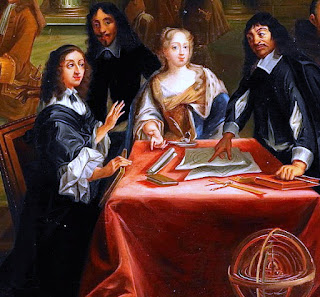In this age Europe ceased to lead the
world, and its own civilization was weakened through national rivalry and
dis-union. This instability reached down to the structure of society. No longer
did changing, urban, society have as its foundation the stability of rural society,
with its natural rhythm and traditional human culture. That which had fed the
new urban culture was now exhausted by the strain which urban, artificial
culture put upon it. And so, rural society becomes a small minority. The powers
of the State and public opinion acted to streamline and bring conformity to the
entire population.
In the new “civilization” the
conditions of life became more and more artificial as it moved away from the
natural rhythm, making increasing demands on people’s energies. The change was
not just material but also biological, a change which will affect the future of
mankind. Can human beings adapt themselves successfully to these conditions?
Can people maintain the energy that these conditions require of them? Will
people become exhausted, and an era of social degeneration follow? Will a new
form of social equilibrium be scientifically engendered?
Let us remember that the Roman Empire
fell because of a sudden change of material conditions. These conditions, the
foundation of her power, were the agrarian, peasant life of the soldier
citizen. Once the Mediterranean world had been conquered by Rome, a new,
sophisticated elite arose who lived by war and plunder, exhausting Rome’s
strength. Rome killed Rome; a vast, useless burden broke the back of the
Empire.
Yet the Church was in the midst of
this, as the Prophets had foretold; and her foundation was neither power,
science nor the natural rhythm, but the mystical union of her human faculties
with the Son of God.
Today, urban development does not have
the parasitic character of the ancient world. Moreover, science has helped to
nurture the material conditions of life. But the social changes carry more
weight. What our civilization needs today is social and moral unification – a profound
human fellowship and sharing in our common lot. The Church’s contribution to this is
precisely the New Evangelisation.
Actually, the world, which was a
European creation, needs Europe. Neither politicians nor politics appear to
offer the remedy. Europe today is waiting for a new Augustus; the emperor who
converted the selfish forces of the Empire into agents of peace and world
order.
Europe needs to be a place of social
and economic co-operation. However, Liberalism, in its project to secularise
Europe, has undermined its own foundations and has destroyed the spiritual
tradition upon which Europe was built.

















